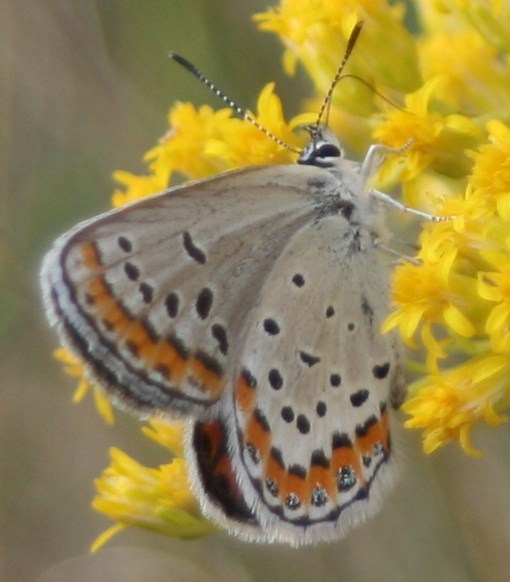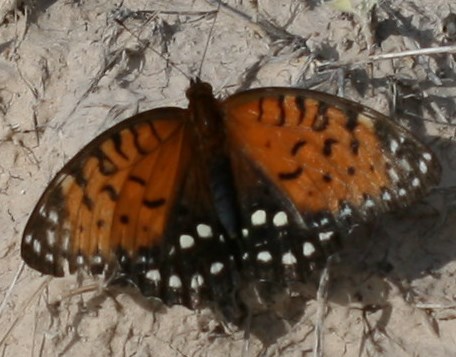Part of a series of articles titled Wildlife in the Badlands.
Article
Badlands Butterflies

NPS Photo

NPS Photo
When wildflowers bloom on the South Dakota prairie, watch for these bright jewels fluttering about! Of the estimated 14,500 butterfly species in the world, 177 live in South Dakota and 69 have been documented in Badlands.
Butterfly distribution depends upon the presence of appropriate host plants, which in turn vary according to local soil, moisture, temperature, and elevation. The mixed-grass prairie of Badlands is dominated by grasses like wheatgrass, buffalograss, and blue grama, but associated forbs serve as host plants for butterfly larvae and provide food for adults. The familiar orange-and-black monarch butterfly feeds on milkweed, tolerating toxins produced in the plant that render the butterfly unpalatable to birds.

NPS Photo
Another large, distinctive butterfly seen in Badlands is the two-tailed swallowtail. Reaching five inches in wingspan, this bright yellow-and-black insect favors chokecherry, green ash, and wild plum as a host plant. Mourning cloaks, purplish-brown with wings edged in creamy yellow, prefer willows and cottonwoods.
Many other species, including sulphurs, whites, coppers, hairstreaks, blues, frittilaries, and skippers, may also be observed. Please remember to enjoy butterflies at a distance—it is illegal to net or collect them in the national park. Cameras and binoculars can be very useful tools for enjoying these living gems.
Select a Park:
Select a Species Category (optional):
Visit NPSpecies for more comprehensive information and advanced search capability. Have a suggestion or comment on this list? Let us know.
Last updated: November 10, 2020
